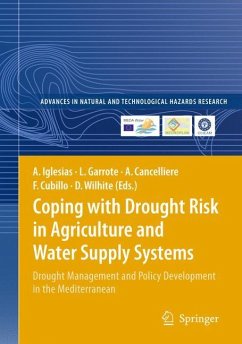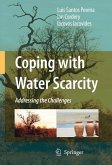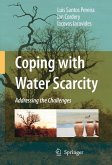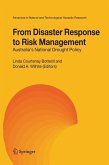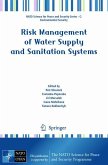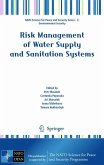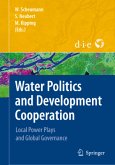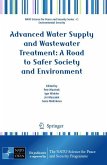Over the last three decades drought episodes have resulted in severe social problems in Mediterranean countries, receiving broad attention from the international scientific and policy communities. The experiences in the development and implementation of drought management plans highlight the success and challenges of coping with drought for societies with different vulnerabilities and emphasize risk-based drought management as a critical approach to mitigate the impacts associated to drought-induced water shortages. Based on these experiences and the current methods for evaluating risk, the book synthesises guidelines for drought management that link science and policy and that can be applied to other regions.
The book comprises a collection of papers divided into four sections that appeal to a broad audience. First, the social and hydrological context of Mediterranean countries is presented, discussing the interactions that have resulted in the complex institutional framework, and highlighting the importance of stakeholder involvement and awareness building for successful drought management. This section emphasises the role of organizations, institutions, and civil stakeholders involved in drought preparedness and mitigation and/or on water management for designing effective risk based strategies that mitigate the effects of drought in agriculture and water supply systems.
Second, the book presents an academic approach to risk evaluation, including characterization of drought episodes, development of indicators of risk in hydrological and agricultural systems, and analysis of the role of economic instruments and groundwater for risk mitigation. This section finalises with the description of an integrated method for evaluating social vulnerability based on indicators that include the capacity to anticipate, cope, and respond to drought.
The third section includes a collection of case studies that include the description of effective measures taken in the past. These case studies provide the context for developing demand driven guidelines that may be applied to other regions. The authors of these chapters can be viewed as stakeholders in drought management, since they represent a broad range of sectors and institutions from Mediterranean European and North African countries. The topics addressed have implications for the international policy community interested in disaster mitigation, agricultural policy, and development.
Finally a synthesis of the management actions is presented in four chapters. Monitoring and preparedness planning is the essential first step for moving from disaster to risk management in response to drought. The management actions related to agriculture and water supply systems are presented in two different chapters but with a common conceptual framework based on the use of drought indicators for evaluating the levels of drought risk (pre-alert, alert, and emergency), that allow establishing linkages between science and policy. The final chapter discuses the lessons learned and application to other regions.
Hinweis: Dieser Artikel kann nur an eine deutsche Lieferadresse ausgeliefert werden.
The book comprises a collection of papers divided into four sections that appeal to a broad audience. First, the social and hydrological context of Mediterranean countries is presented, discussing the interactions that have resulted in the complex institutional framework, and highlighting the importance of stakeholder involvement and awareness building for successful drought management. This section emphasises the role of organizations, institutions, and civil stakeholders involved in drought preparedness and mitigation and/or on water management for designing effective risk based strategies that mitigate the effects of drought in agriculture and water supply systems.
Second, the book presents an academic approach to risk evaluation, including characterization of drought episodes, development of indicators of risk in hydrological and agricultural systems, and analysis of the role of economic instruments and groundwater for risk mitigation. This section finalises with the description of an integrated method for evaluating social vulnerability based on indicators that include the capacity to anticipate, cope, and respond to drought.
The third section includes a collection of case studies that include the description of effective measures taken in the past. These case studies provide the context for developing demand driven guidelines that may be applied to other regions. The authors of these chapters can be viewed as stakeholders in drought management, since they represent a broad range of sectors and institutions from Mediterranean European and North African countries. The topics addressed have implications for the international policy community interested in disaster mitigation, agricultural policy, and development.
Finally a synthesis of the management actions is presented in four chapters. Monitoring and preparedness planning is the essential first step for moving from disaster to risk management in response to drought. The management actions related to agriculture and water supply systems are presented in two different chapters but with a common conceptual framework based on the use of drought indicators for evaluating the levels of drought risk (pre-alert, alert, and emergency), that allow establishing linkages between science and policy. The final chapter discuses the lessons learned and application to other regions.
Hinweis: Dieser Artikel kann nur an eine deutsche Lieferadresse ausgeliefert werden.

